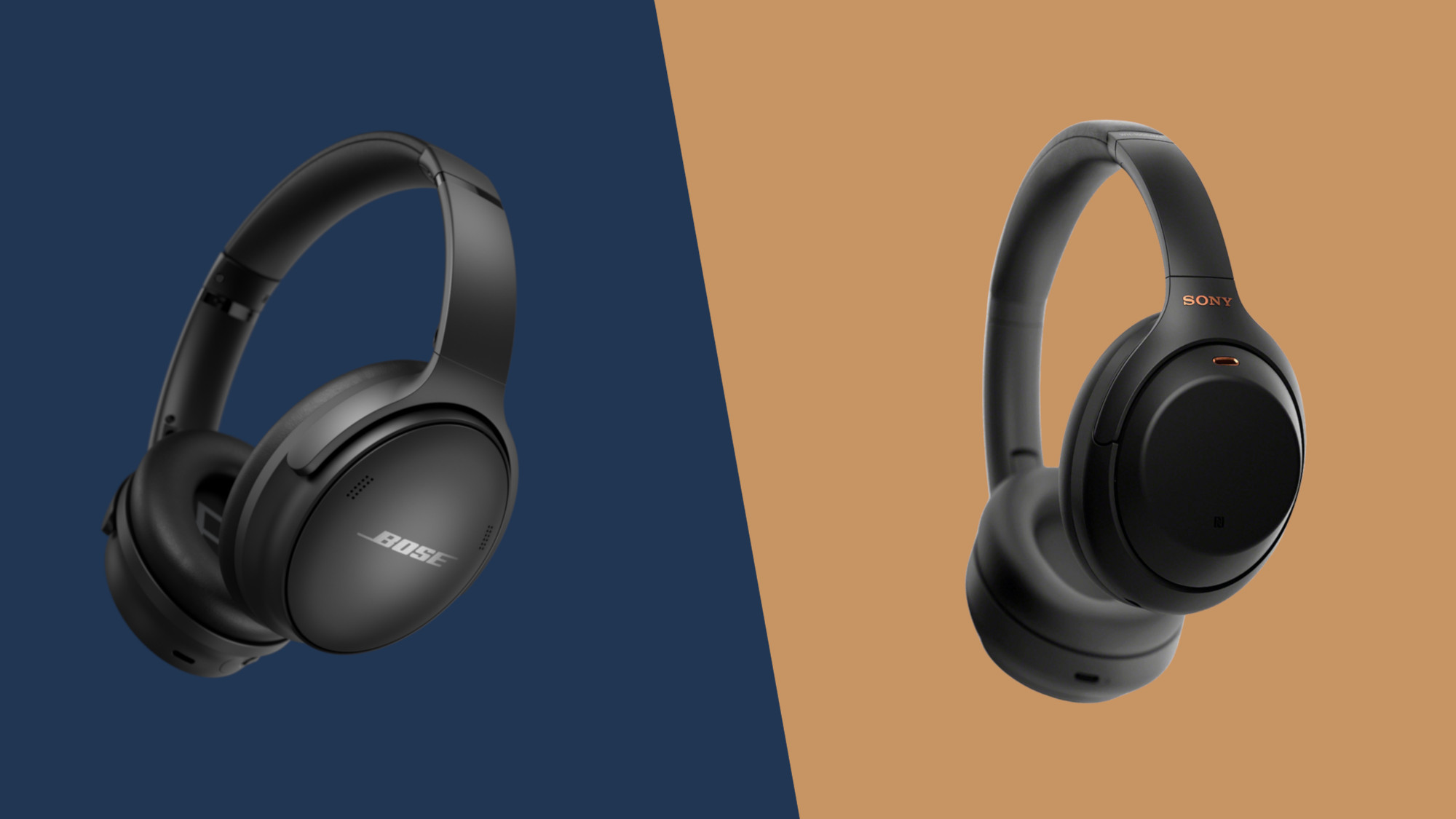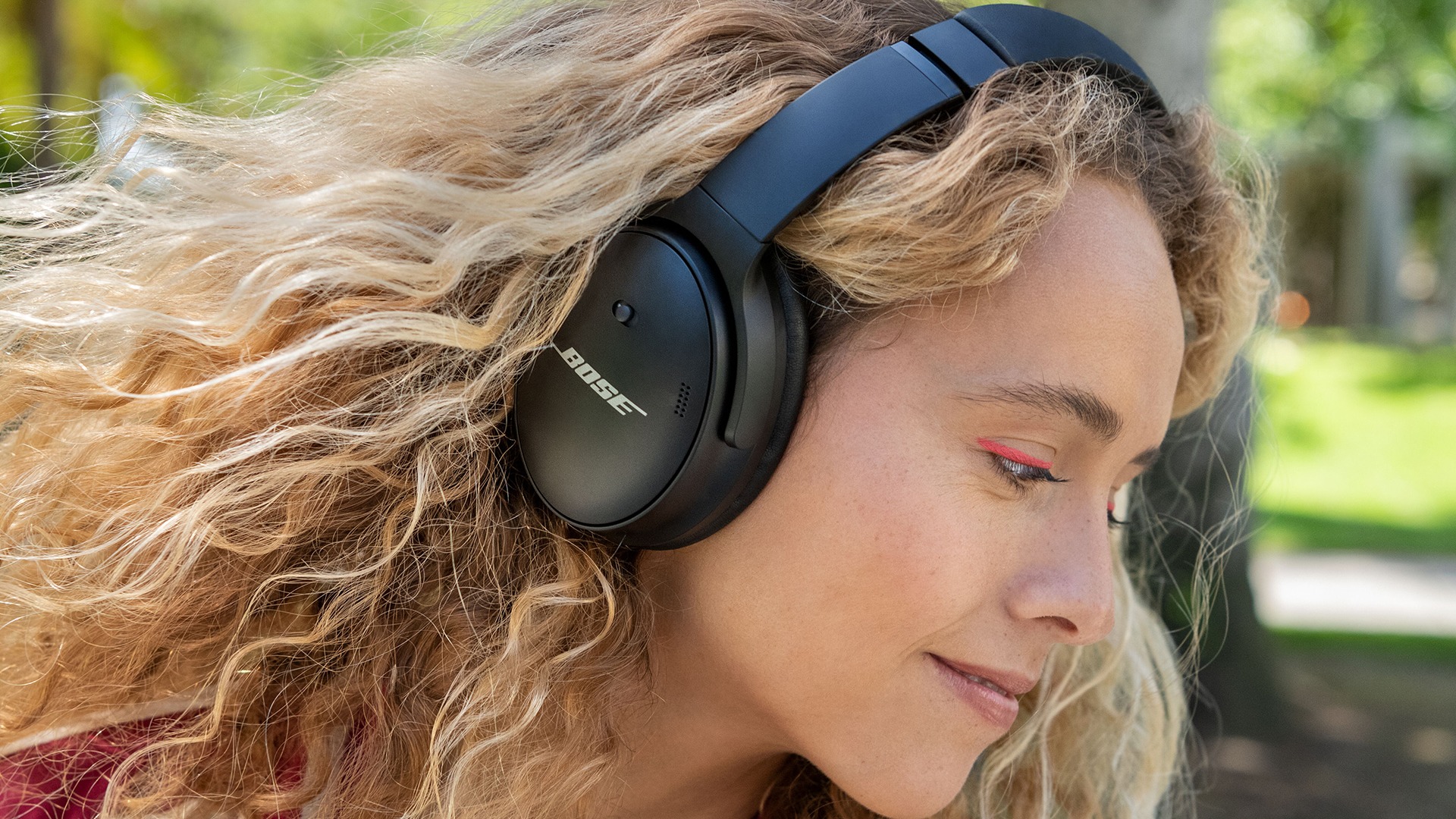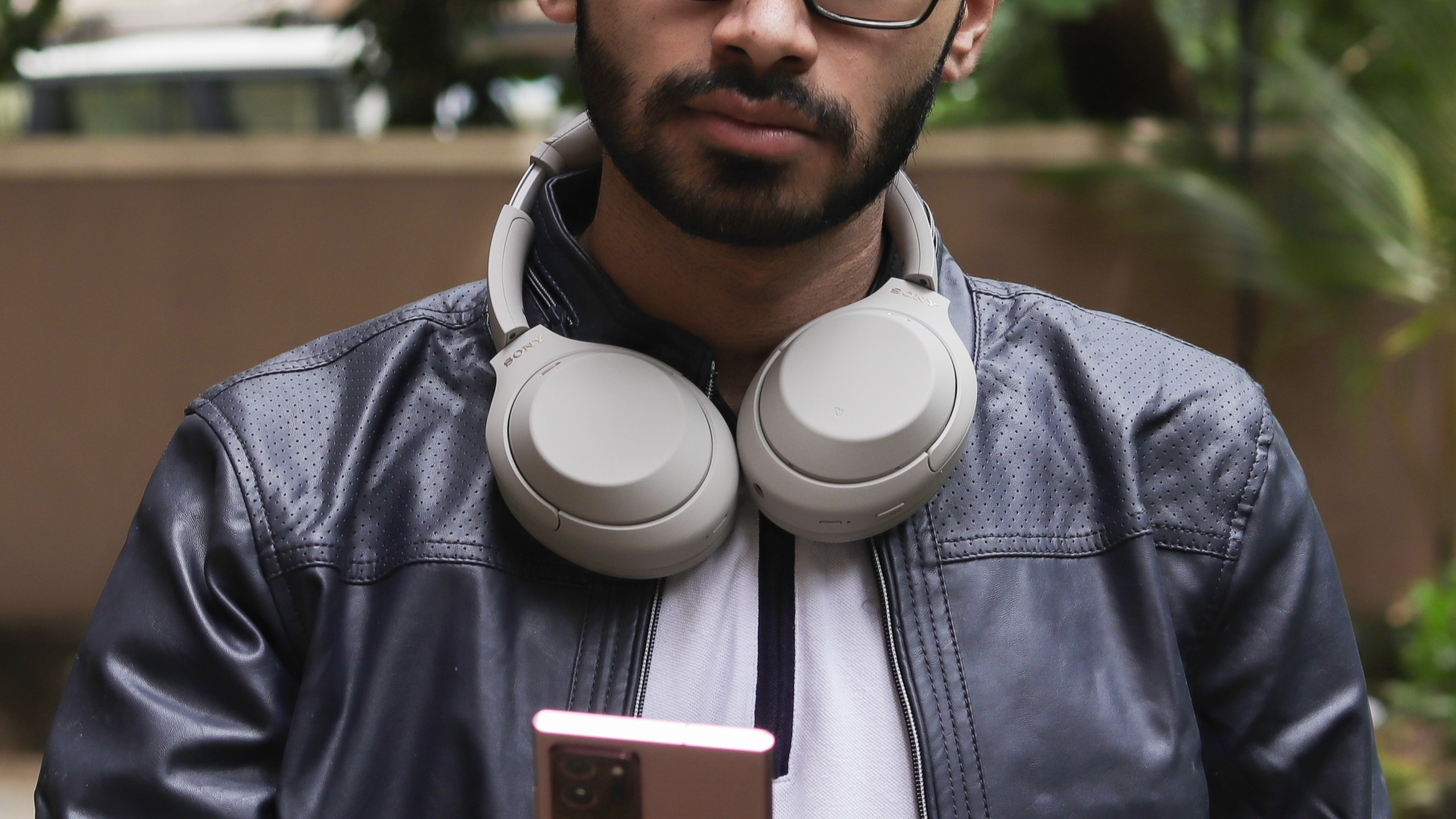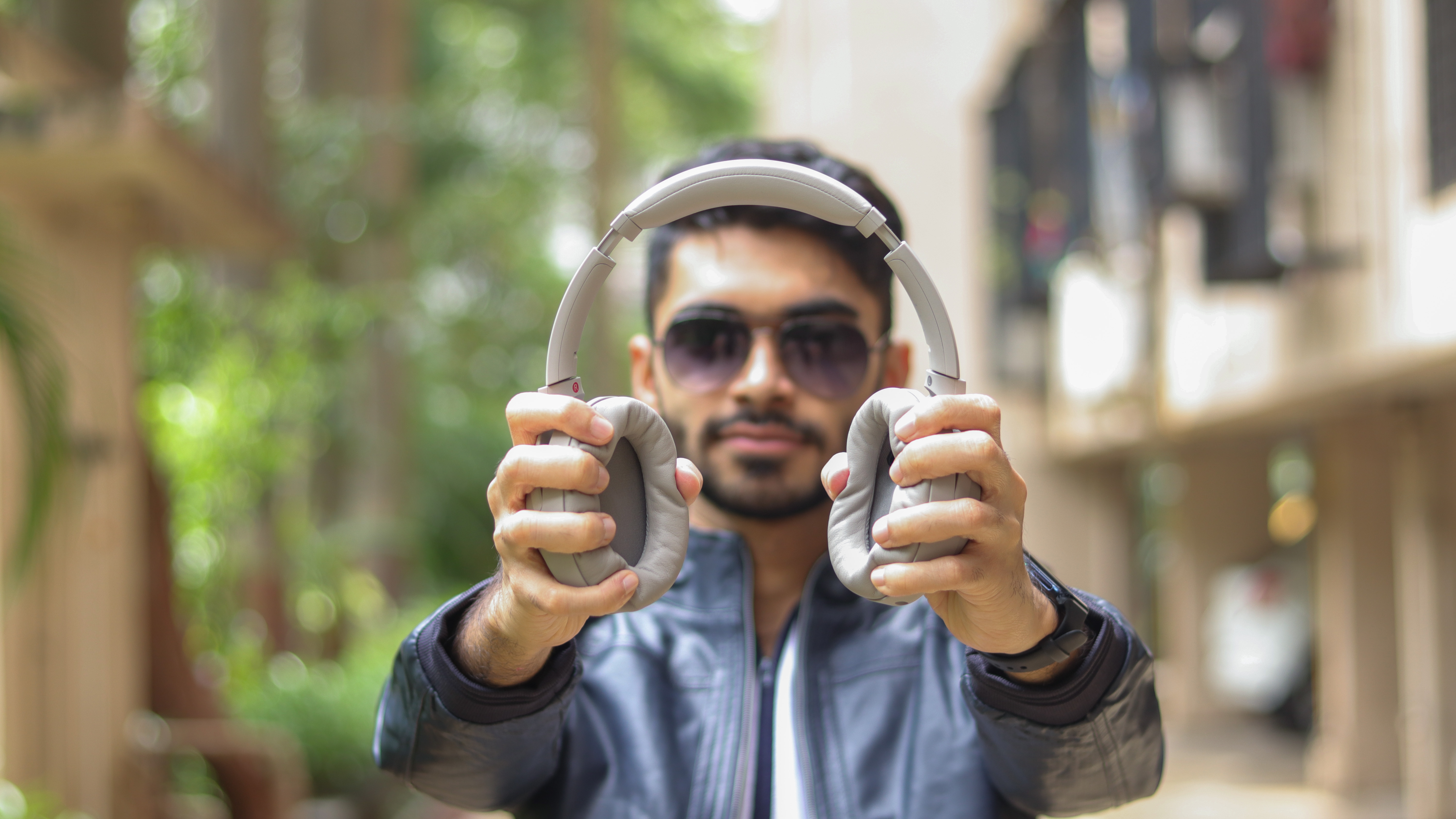
In the contest to make the best noise cancelling headphones, two big brands have been tangled in a tug of war for the last three years – that’s Bose and Sony.
Sony took on the Bose QuietComfort 25 with its first Sony MDR-1000X headphones a few years back and the two have been competing for consumers’ favor ever since.
This year, the fight is between the Sony WH-1000XM4 that came out in late 2020 and the brand-new Bose QuietComfort 45 that just came out a few months back.
Each of the two excel in areas where the other doesn’t and yet, we think there’s a clear winner that’s worth your money. Here’s how they stack up.
What’s good about the Bose QuietComfort 45?

They’re cheaper
One area in which the Bose QuietComfort 45 are the clear winner is price. At just $329 / £329 / AU$499.95 they are cheaper than the Sony WH-1000XM4 that will set you back $349.99 / £349 / AU$549. That’s not a wide margin, but it’s enough to make a difference.
That being said, while Bose is the clear winner in this category right now things might change come Black Friday and Cyber Monday when Sony reliably shaves off some money from its flagship noise-cancelling headphones. We’ve seen it happen every year for the last few years, so we’re nearly positive it will happen again in 2021.
Get daily insight, inspiration and deals in your inbox
Sign up for breaking news, reviews, opinion, top tech deals, and more.
They have a familiar design
For the Bose faithful, the QuietComfort 45 will feel intimately familiar right out of the box. Bose has only slightly changed the design of the Bose QuietComfort 35 – and we think there are folks who will absolutely appreciate seeing a similar style here.
For those who haven’t seen them yet, the exterior of the headphones looks sleek and feels comfortable thanks to its padded foam bridge and faux-leatherette ear pads. The pads themselves swivel and fold to help them fit into the included carrying case, which makes them easy to throw in your carryon bag when they’re not around your neck.
At just 8.5 ounces (238g), they really feel light on the ear and are comfortable to wear for hours on end. To get them so light, Bose uses some plastic on the arms of the headphones but uses metal for all the joints and the bridge - basically all the parts that are most likely to snap in use.
Their controls are incredibly intuitive
Speaking of familiar, the controls are very similar to what we’ve seen on Bose headphones in the past: on the right earcup you’ve got controls for pause/play, volume up and volume down, while on the left earcup you’ll find a button for the new ambient aware mode. You can also summon your phone’s built-in assistant by holding the play/pause button, which is nice. It’s not as nice as having an always listening assistant built into the headphones, but better than not having an option for an assistant at all.
Their noise-cancellation is pretty darn good
The other point we have to give to Bose is that its noise-cancellation is really, really strong. It’s so powerful that you could easily turn them on and play a song at mid-volume, and you won’t hear someone talking directly to you.
What’s disappointing about them, however, is that there’s just one setting for noise cancellation and that’s strong. The Bose Noise Cancelling Headphones 700 offers 11 different levels of noise cancellation to choose from – so it feels like a big miss that the QC45 doesn’t even have two or three.
What’s better about the Sony WH-1000XM4?

They have better sound quality thanks to LDAC
Not to knock Bose here, but the Sony WH-1000XM4 simply sound better: they have a warm and balanced sound that does well to offer a wide soundstage when required and detail that can pierce through a powerful bass performance.
Because the Sony headphones support LDAC – a higher-end audio codec that allows for more data to be transmitted than standard SBC – the WH-1000XM4 can receive more data when you’re connected to an Android device than the Bose can. If you want more clarity in your music and a better overall experience, Sony has it.
They support spatial audio
Speaking of audio, the Sony WH-1000XM4 take things one step further than before with 360 Reality Audio – Sony’s proprietary spatial audio format. Listening to spatial audio on these headphones doesn’t quite feel like a full Dolby Atmos experience with floorstanding speakers, but you’ll really get a feel for the large soundstage when you’ve got music mixed to come at you from all directions.
You can change how much sound they tune out
Another good reason to go for the WH-1000XM4 is that you can tune just how powerful their noise cancellation is from the Sony Music app. Sometimes you’ll want partial passthrough if, say, you’re out jogging and you want to be able to hear a siren behind you or if you’re waiting at an airport for your flight to be called. You won’t need those settings all the time – and you’ll probably default to holding the right earcup to cut noise cancellation completely when you really need to hear someone, but it’s a nice feature to have.
They have better call quality
While neither pair of headphones should replace a proper Bluetooth headset for taking business calls, we did find call quality to be slightly better on the Sony WH-1000XM4 that friends told us sounded similar to speakerphone. The Sony will give you as good of quality as talking directly into your phone – but don’t expect stellar call quality in either headphones.
They have longer battery life
If you’re just looking at pure specs, the Sony WH-1000XM4 is the longer-lasting pair of noise-cancelling headphones. They’re rated for 30 hours with noise cancelling turned on and around 38 hours with noise cancelling turned off.
And though it doesn’t have better battery life than the previous generation’s 1000XM3, the 1000XM4 does stretch things as far as possible thanks to the new auto-on/off and play/pause sensor inside the earcup that can tell when you’ve taken the headphones off. It’s a huge boon to folks who might forget to turn off their headphones at the end of the day only to find that they’re dead 24 hours later.

Verdict
In this battle, we feel the Sony WH-1000XM4 are the better headphones. They offer longer battery life, better call quality and better audio reproduction – and they have features that the Bose QuietComfort 45 simply doesn’t have right now. They’re our top pick for a reason.
That said, if/when Bose adds more features to the QuietComfort 45 via a firmware update, we could feel slightly differently – especially if those changes address the sound quality.
We’d also warn you that the Bose QuietComfort series is no longer the flagship product of Bose – that honor belongs to the Bose Noise-Cancelling Headphones 700. Those are more expensive, but have many of the features we think are missing from the QC45.
Long story short, if you can only pick one, go for the Sony WH-1000XM4.
- Want to see how the 1000XM4 stack up against the NC700? Check out our Sony WH-1000XM4 vs Bose Noise Cancelling Headphones 700 guide
Nick Pino is Managing Editor, TV and AV for TechRadar's sister site, Tom's Guide. Previously, he was the Senior Editor of Home Entertainment at TechRadar, covering TVs, headphones, speakers, video games, VR and streaming devices. He's also written for GamesRadar+, Official Xbox Magazine, PC Gamer and other outlets over the last decade, and he has a degree in computer science he's not using if anyone wants it.
